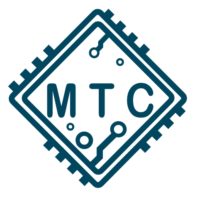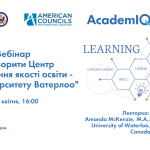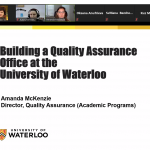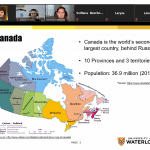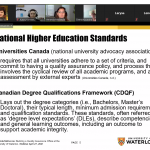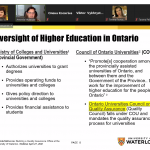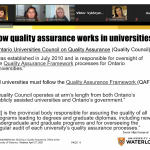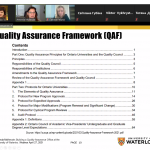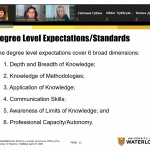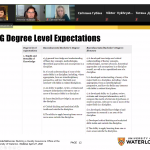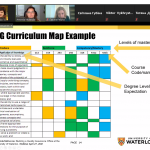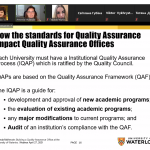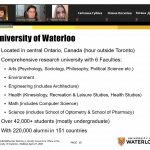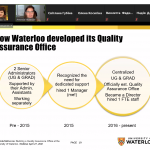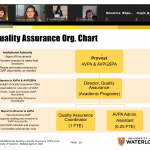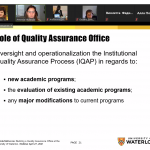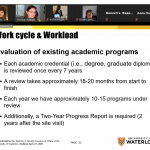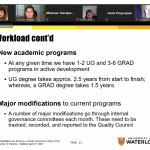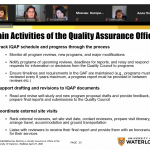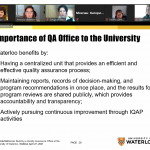Participation in the webinar “How to create a center for quality assurance in education – the experience of the University of Waterloo”
As part of KNURE’s participation in the Academic Integrity and Education Quality Initiative (Academic IQ) Project, Iryna Svyd, Head of the MTS Department, on April 27, 2021 took part in the webinar “How to create a center for quality assurance of education – the experience of the University of Waterloo.”
The webinar examines in detail the experience of the University of Waterloo (Ontario, Canada) in establishing a Center for Quality Assurance in Education. In particular, the quality assurance process and educational standards in Ontario, as well as their impact on the functioning of the Quality Assurance Center. The responsibilities and activities of the Center are discussed, as well as the advantages of the existence of such a Center and its significance for the university.
Speaker:
Amanda Mackenzie, M.A., Director of Education Quality Assurance (Educational Programs) at the University of Waterloo, Ontario, Canada. She also manages the process of quality assurance and academic integrity at the university. Professional experience in the field of academic integrity: Head of the Ontario Academic Integrity Council (AICO) in 2014-2017; co-founder and facilitator of the Canadian Consortium of the International Center for Academic Integrity (ICAI); Member of the Transition Committee of the International Center for Academic Integrity (ICAI), 2016-2018. Amanda is currently a member of the ICAI Board of Directors.
Since 2014, Amanda has regularly hosted the Canadian ICAI Consortium Day, addressed the annual conferences of the International Center for Academic Integrity (ICAI), and made presentations at the First ICAI Mediterranean Conference in Athens, Greece, and at the International Conference Against Plagiarism in Europe and beyond. (Czech Republic). In 2016, Amanda visited India to study academic integrity at a number of universities across the country. Her current focus is on academic fraud, teachers’ approaches to academic integrity, and the intersection of quality assurance and academic integrity.

